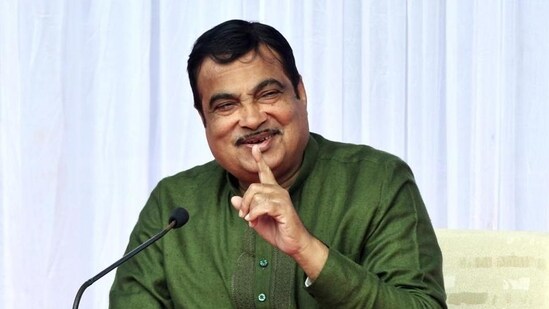Placing principles ahead of political positions
Gadkari has the courage to differ with the BJP on issues that might be considered almost a catechism for the party. Over the years, he has displayed this several times, including as recently as last week
Given the prevailing character of our politics, I’ve come to believe Nitin Gadkari is a unique politician. He has the courage and conviction to differ with his Bharatiya Janata Party (BJP) on issues that might be considered almost a catechism for the BJP. It seems on such occasions he puts his principles and beliefs ahead of the party’s politically expedient positions.

Last week, a Lokmat function in Pune offered the most recent example of what you might call Gadkari-speak. He called for a strong reinvigorated Congress, not Congress-mukt Bharat, which is the persistent refrain of his senior colleagues. “Democracy runs on two pillars – the ruling dispensation and the Opposition. A strong Opposition is a need for democracy. Hence it’s my honest wish that the Congress should become stronger.”
This, however, was only the start. Gadkari went a lot further. “Those who follow the Congress ideology should remain in the party and stick to their convictions. They must continue to work and not despair over defeat. If there is defeat, one day there is victory too… so one should not abandon one’s ideology in moments of despair… every party will get its day. The point is to keep working on.”
Consider for a moment the significance of this comment. Gadkari is one of the most senior members of a party that has opened its doors to a long line of Congress defectors. They’ve become Cabinet ministers, state ministers, and Members of Parliament (MPs) in both Houses. Even if belated, this sounds like an admonition. It doesn’t carry the tone of a warm welcome. It’s bound to make a few former Congressmen squirm.
Startling as these comments sound – because they’re unexpected though in the best traditions of democracy – they aren’t the first time Gadkari has publicly broken ranks with his party on issues it gives enormous prominence to. Last year he praised Jawaharlal Nehru. He called him “an ideal leader of Indian democracy”.
Speaking about the disrupted functioning of Parliament, shortly after the end of the Monsoon Session, Gadkari said this to the Hindi channel News Nation: “[Atal Bihari] Vajpayee aur Nehru, ye Hindustan ke loktantra ke do adarsh neta the, aur dono kehte the ki main apne loktantrik maryada ka paalan karunga.” (Vajpayee and Nehru were the two ideal leaders of Indian democracy and both used to say they would act with democratic dignity).
Last week, in Pune, Gadkari once again spoke about Vajpayee and Nehru in terms that can only be said to honour the latter’s memory. “Atal Bihari Vajpayee lost the Lok Sabha election but still earned Pandit Jawaharlal Nehru’s respect.” I imagine he was referring to 1962, when Vajpayee suffered a surprise defeat. But let me raise an intriguing possibility. Could Gadkari have had 1957 in mind, when Vajpayee stood from three constituencies and lost in Lucknow and Mathura but won from Balrampur? If that was the case, could this comment also have been hinting at Rahul Gandhi, who in 2019 lost Amethi but won in Wayanad? Was this a way of suggesting Gandhi should be treated with more respect?
Before I finish, let me cite a little example from my limited association with Gadkari. For five years and more, no one from BJP has given me an interview, but on two occasions, Gadkari readily agreed to do so. On the first, after accepting, he told me his party leadership had asked him to back out. He didn’t. Instead, he said, “I gave you my word and I’ll stand by it.”
On the second, his response was almost defiant. “Ek bar diya hai to phir interview dene me kya problem hai? Jo naraz honge unko hone do.” (I’ve given an interview once, what’s the problem a second time? Let those who get angry be angry).
I don’t want to embarrass Gadkari, but his colleagues in government should follow his example. Political parties are opponents, not enemies. Journalists may be irksome, but politicians have a moral duty to answer the questions they ask.
Karan Thapar is the author of Devil’s Advocate: The Untold Story
The views expressed are personal
Continue reading with HT Premium Subscription





